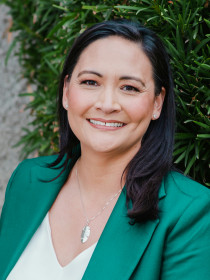
Bernadette Austin
Connect with Bernadette
About Bernadette
Austin cultivates cross-sector partnerships to address the greatest challenges facing communities. She provides thought leadership on land use planning, sustainable development, social equity, and inclusive leadership. As CEO of CivicWell, Austin supports leaders responding to the climate crisis and its impact on their communities. She supported community-engaged research in her prior role as Executive Director of the UC Davis Center for Regional Change. Her research projects included inclusionary housing, gentrification and displacement, regional migration, transportation equity, and carbon neutrality.
Contributions
In the News
Publications
Develops an evaluation guide for the work being conducted within the Promise Zone. Provides evaluation options, tools and resources, and guidance on “next steps” to track progress over the life of the initiative. Focuses on continuous learning and improvement, evaluation can strengthen the effectiveness of Promise Zone activities and understand how to create positive change for residents living in Sacramento.
Provides a research-driven analysis of options that can put California on a pathway to achieve carbon-neutral transportation by 2045. Finds that cost-effective pathways to carbon-neutral transportation in California exist, but that they will require significant acceleration in a wide variety of policies.